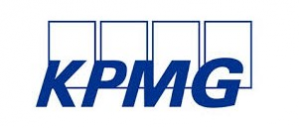Growing the influence of Czech business in Brussels
23.03.2017Company: Grayling Czech Republic, s.r.o.
The title of this Best Office publication is “Strategy for Growth”. As every business person knows, no growth strategy can succeed without an operating environment which is conducive to growth, and in many business sectors, the operating environment is primarily being set at EU rather than Member State level.
I spend a lot of time in Brussels – it is probably the most strategically important of the 20 offices I oversee across Europe – and I am consistently struck by how under-represented the Czech business community is in the EU’s corridors of power. This isn’t just a Czech problem. The EU’s Transparency Register provides a useful snapshot of which companies are active in the policy debate at EU level. Of the largest 25 Central & Eastern European (CEE) companies, only three have registered people working in Brussels to shape policy. Two more have registered people based outside Brussels, and seven are represented through parents companies. More than half appear not to be attempting to influence EU decision-making except through their membership in trade associations.
If the EU is so important, how do you explain that? Talking to senior business leaders from the Czech Republic and the rest of CEE, I think it primarily comes down to a very pragmatic assessment of the likely return on investment. Many people simply conclude that there is very little chance of achieving tangible results.
This is understandable, but it is also a mistake. The truth is that companies – even SMEs – which understand how the EU institutions work, develop a compelling story and commit to engaging proactively, can have a disproportionate influence on EU policy-making. Only they have the chance to shape the operating environment for their business so that it facilitates growth rather than restricting it.
The good news is that Czech companies are becoming more engaged in Brussels, both through parent companies and independently. This is a positive sign because this issue does not just affect the business community. It also limits the Czech Republic’s influence at EU level – which in turn hinders the country’s competitiveness and growth. Poland has, up to now, been the clear leader in Brussels of the group of CEE countries which joined the EU in 2004. It is time for the Czech Republic to start redressing the balance.
Author: Jan Simunek, CEO, Grayling Continental Europe, www.grayling.cz
Abstract:
The Czech business community is under-represented in the EU’s corridors of power. Of the largest 25 Central & Eastern European (CEE) companies, more than half appear not to be attempting to influence EU decision-making except through their membership in trade associations. Though companies – even SMEs – which understand how the EU institutions work, develop a compelling story and commit to engaging proactively, can have a disproportionate influence on EU policy-making. Only they have the chance to shape the operating environment for their business so that it facilitates growth rather than restricting it.
Tags: Business Development |






